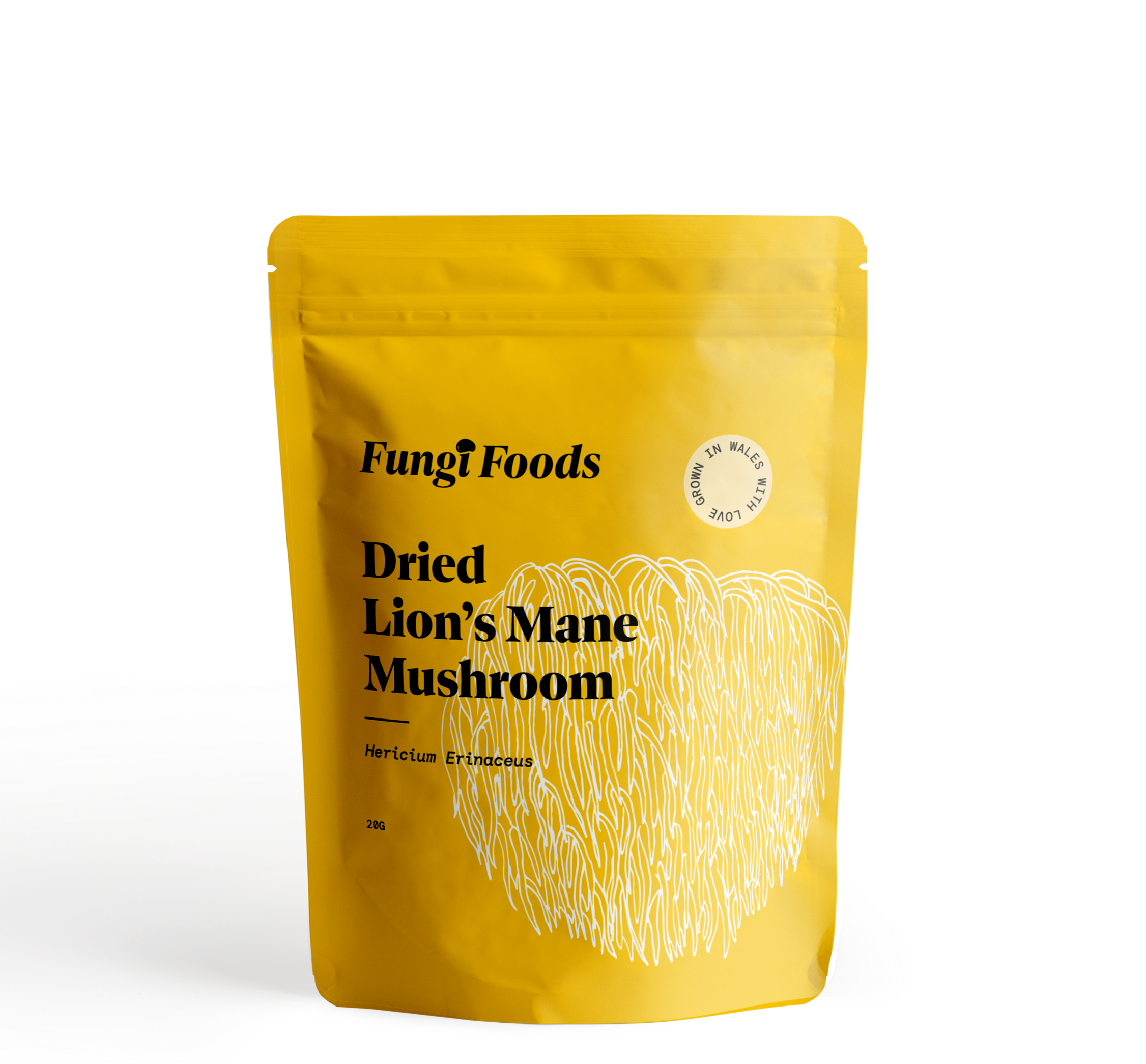
Lion's Mane 'Crab' Cake
The delicate buttery taste of lion's mane mushroom makes it a perfect substitute for crab. Follow our Fungi Food recipe to make these delicious mushroomy delights!
Ingredients
Garlic (3 cloves)
Soy sauce (1 teaspoon)
White vinegar (1 teaspoon)
Mayonnaise (2 tablespoons, or vegan equivalent)
Red onion (1)
Lemon (1)
Parsley (to taste)
Lion's mane mushroom (200g fresh or 20g dried)
Lemon (fresh, to taste)
Parsley (to taste)
Panko bread crumbs (to taste)
Golden bread crumbs (to taste)
Egg (1, or vegan egg replacer equivalent)
Method:
Step 1
- Preheat your oven at 150*.
Step 2
- If using dried Lion's Mane then rehydrate as instructed on back of pack.
Step 3
- Grab your lion's mane and tear it up with you hands - follow the fibres of the mushrooms and it will pull apart easily. Keep the pieces small, no bigger the garlic cloves.
Step 4
- Add the lions mane into a bowl with a table spoon of olive oil and mix with your hands - you just want a light coating of oil as these mushrooms will soak it up.
Step 5
- Transfer the mushrooms onto a tray and place in the oven for 10 minutes. Keep an eye on the mushrooms giving a shake half way through to ensure even cooking.
Method:
Step 1
- Preheat your oven at 150*.
Step 2
- If using dried Lion's Mane then rehydrate as instructed on back of pack.
Step 3
- Grab your lion's mane and tear it up with you hands - follow the fibres of the mushrooms and it will pull apart easily. Keep the pieces small, no bigger the garlic cloves.
Step 4
- Add the lions mane into a bowl with a table spoon of olive oil and mix with your hands - you just want a light coating of oil as these mushrooms will soak it up.
Step 5
- Transfer the mushrooms onto a tray and place in the oven for 10 minutes. Keep an eye on the mushrooms giving a shake half way through to ensure even cooking.
Step 6
- While the mushrooms are cooking, mix together egg, soy sauce, vinegar, mayo and mix. Add the lions mane red onion, paprika, bread crumbs and squeeze half a lemon with a pinch of salt and pepper.
Step 7
7. Once the ingredients are thoroughly mixed - form into small balls and then flatten into smallish cakes.
Step 8
Add olive oil to a pan on a medium heat and fry crab cakes on 3 mins each side until golden.
Enjoy!
Method:
Step 1
- Preheat your oven at 150*.
Step 2
- If using dried Lion's Mane then rehydrate as instructed on back of pack.
Step 3
- Grab your lion's mane and tear it up with you hands - follow the fibres of the mushrooms and it will pull apart easily. Keep the pieces small, no bigger the garlic cloves.
Step 4
- Add the lions mane into a bowl with a table spoon of olive oil and mix with your hands - you just want a light coating of oil as these mushrooms will soak it up.
Step 5
- Transfer the mushrooms onto a tray and place in the oven for 10 minutes. Keep an eye on the mushrooms giving a shake half way through to ensure even cooking.
Step 6
- While the mushrooms are cooking, mix together egg, soy sauce, vinegar, mayo and mix. Add the lions mane red onion, paprika, bread crumbs and squeeze half a lemon with a pinch of salt and pepper.
Step 7
7. Once the ingredients are thoroughly mixed - form into small balls and then flatten into smallish cakes.
Step 8
Add olive oil to a pan on a medium heat and fry crab cakes on 3 mins each side until golden.
Enjoy!
_________

